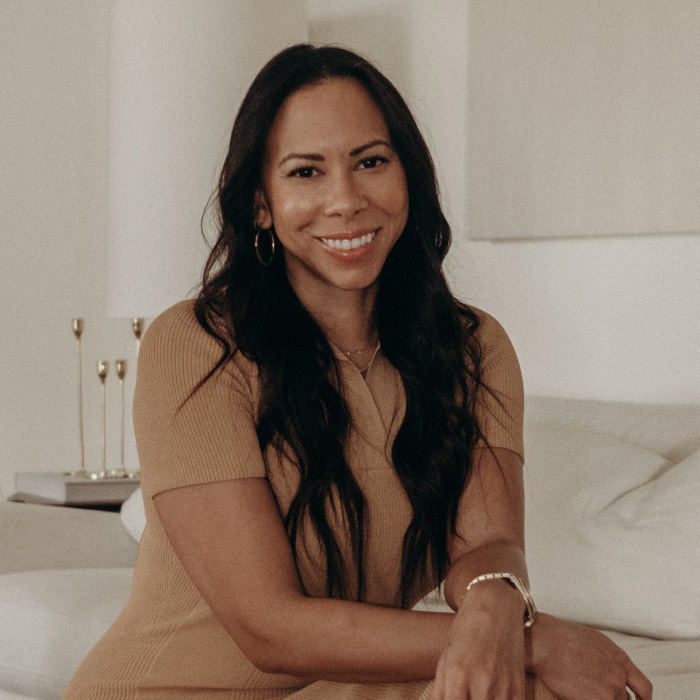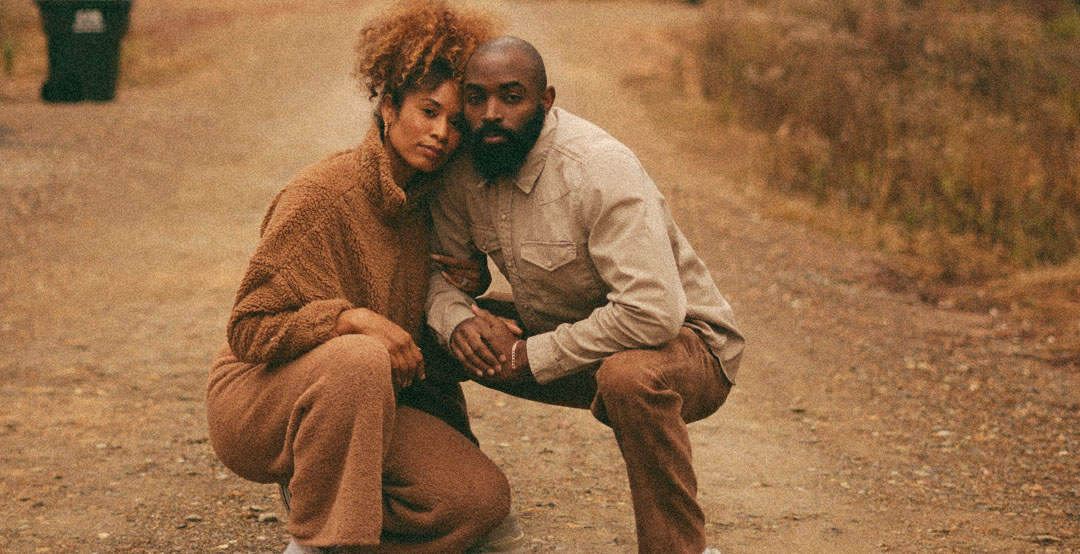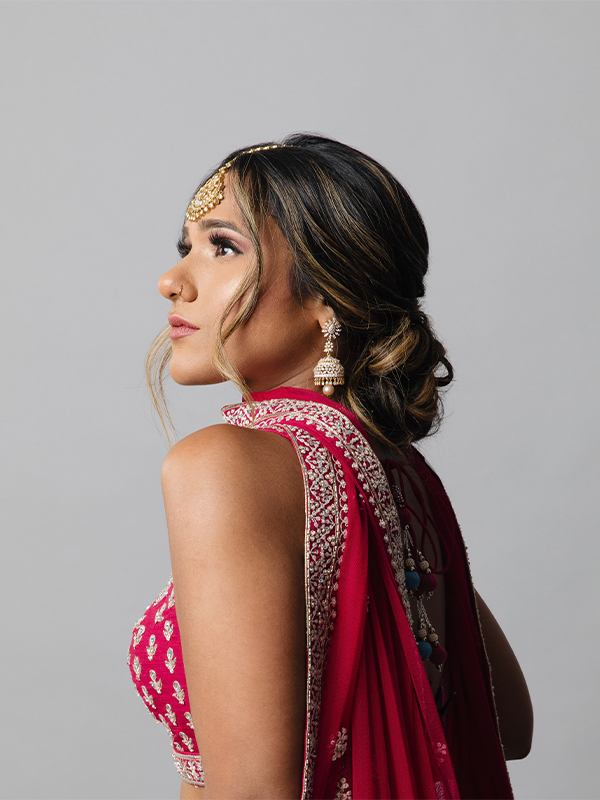Ten months into our marriage, I lunged at my husband. That wasn’t like me. I knew better. Growing up, my aunt always told me never to hit a man unless I was prepared for him to hit me back, and to be frank, I just wasn’t about that violent life. Nonetheless, on a September evening with months of resentment bubbling to the brim, I found myself full of rage as my husband refused to apologize after a day-long argument originally caused by the thermostat—yes, you read that right, the thermostat. I stewed on all the other ways I felt disrespected by him over the past several months.
So I lunged, fists curled into balls at my side. And before my fists landed on him, I caught myself—and he caught me. “Don’t touch me!” I yelled at the top of my lungs. Realizing I had gotten to a place where he had never seen me before, he released me from his hold. Storming out of the house with nothing but slippers on my feet and car keys in hand, something from within spoke to me, “You are too angry to drive. You might hurt yourself. Go for a walk and cool down.”
Watching the sky turn into a mixture of blue, orange and pink, I walked around my neighborhood talking to myself and God for thirty minutes. Did I really almost hit my husband? How did we get here? I was afraid that if we began arguing again, I actually might hit him this time and our relationship would forever be changed. So, saying nothing to him, I walked back into our home, grabbed a bag and began to pack. As I grabbed a fresh pair of underwear, he walked into our bedroom and said, “We were both out of character. Please don’t leave. We can fix this.” After much convincing, I decided to stay.
“Marriage is set up for you as a fairy tale, a promise that if you follow the rules, you’ll get everything you ever wanted and more,” wrote Kevin and Melissa Fredericks in their new book, Marriage Be Hard. “But sometimes that promise doesn’t deliver. We had those expectations but when we got to the reality of what marriage is—the reality we didn’t see at the end of movies, when the prince and princess rode off on beautifully groomed horses—we weren’t prepared for much of what we found.”
With wedding season around the corner, Sweet July spoke with married couples and a licensed marriage therapist about newlywed expectations vs. reality, the need for transparent partner conversations, and how to navigate the not-so-pretty experiences that society often leaves out of love stories.
Sopha Rush, founder of LiveDeeplyRooted and cohost of Moms Actually, admits that she put pressure on herself to be the “perfect” wife, and she expected her husband, Anthony Rush, to be a storybook husband—especially as others watched their marriage unfold on social media. When her marriage didn’t amount to perfection, she was disappointed. Looking into the grim face of unmet fairytale expectations, she struggled with the thought that their marriage was going to fail and hit rock bottom. Many times, she wanted to run because she was so scared of Anthony getting tired and abandoning her first. “I had trauma that I didn’t heal from, and I didn’t know I had all this trauma really ‘cause I was so bubbly and so happy about life,” she says. “And then reality hits you…‘yo, I am not a healed person like I thought I was.’”
Meanwhile, her husband, Anthony, founder of the Created For More brand, was struggling with emotional availability in the first few years of his marriage— something he attributes to early experiences with his biological mother. Facing issues like job loss, opposite work schedules, being away from family, shame about lack of income, different communication styles and a miscarriage, Anthony found it difficult to be vulnerable with Sopha, especially in the midst of conflict. “Back then, I probably didn’t even say anything to her,” says Anthony. “I probably just walked out like, ‘okay, whatever, I understand you’re mad, but I don’t have time to do this right now.’ I think not being able to validate her feelings back then was super hard for me.”
Telling Sweet July that she was very emotional when they were first married, Sopha realizes Anthony didn’t know how to handle all of her emotions. She remembers in the midst of conflict, he wanted to give her space, but what she actually needed was for him to hold and affirm her. On the other hand, Anthony needed Sopha to understand that learning how to live with her, share a space and recognize what she needed at any given moment was really difficult for him. Now, almost seven years later, after marrying in their early twenties, they can look back and admit they were young and didn’t know how to communicate their needs to each other.
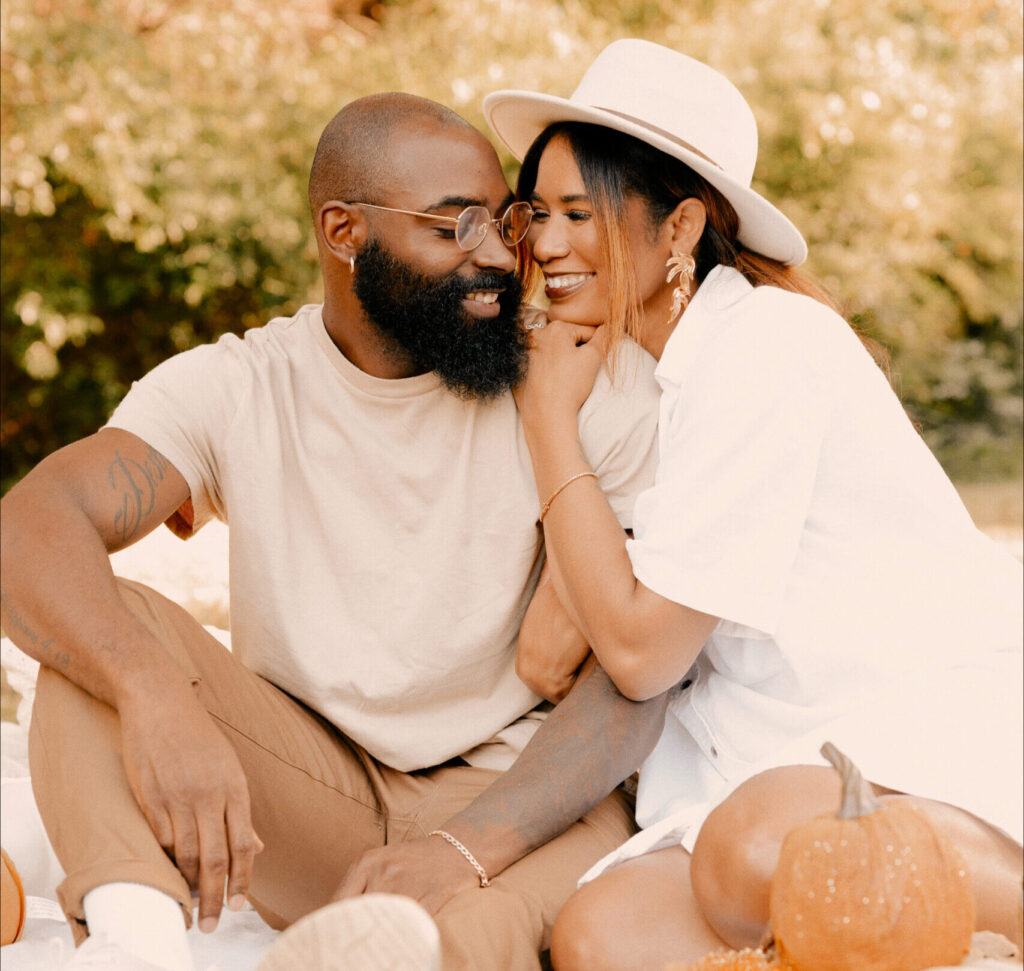
“I think my expectations were way too high,” says Sopha. “I wanted a Cinderella kind of love. I envisioned I would just float around my house—I’m not even kidding.”
Nina Westbrook, a licensed marriage and family therapist and wife herself, tells Sweet July that having expectations is something she tries to steer clear of. In her experience, expectations are rooted in the desire to control how we want other people to respond and react in certain situations. But, “The only thing that we really have control over is ourselves,” she says.
So, putting aside expectations of pure newlywed bliss, the Rushes took time to ask themselves individually what they wanted in their marriage instead of what they thought everyone else wanted for their marriage or what they thought a marriage should look like. Calling it an unlearning and relearning, they found that their first year was an important building period.
The challenges that come with intertwining two lives are major, says Westbrook, and the unique process can cause a lot of tension. She places emphasis on how necessary it is for a person to step out of their comfort zone and be able to compromise in ways they may not be accustomed to in order to accommodate their partner. Such an adjustment doesn’t happen overnight.
Kier and Noemie Gaines had their fair share of conflict in their early years: finding out they were going to have their first child, managing pregnancy difficulties, moving in together, and battling internal questions about whether or not they could be faithful. Individual and couples counseling helped them get to the bottom of their problems each time.
“It was legitimately us biting these big problems we had with each other off chunk by chunk until we got to the root of it and actually had a civil conversation with some actionable steps and some solutions,” Kier tells Sweet July. “You’re not really defined by the issues that you have in your marriage, but you are defined by how you overcome them.”
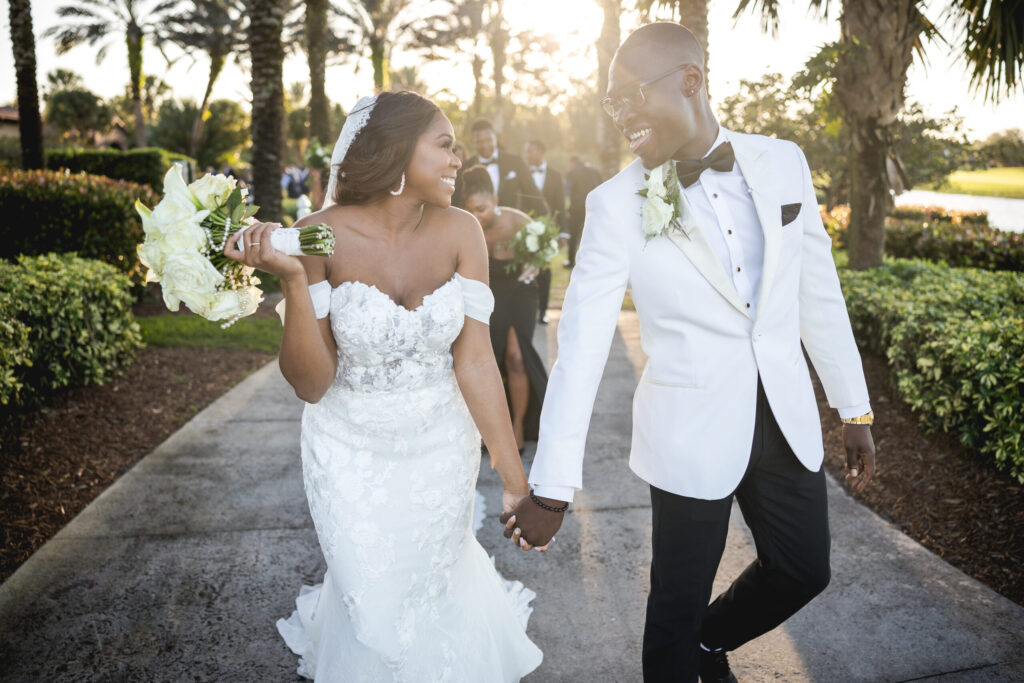
A licensed therapist (Kier) and lawyer (Noemie) turned millennial family content creators, the Gaineses founded Kier & Them with the mission to showcase topics such as non-traditional love and marriage as well as the importance of prioritizing mental health through it all. Inspired by OWN’s Black Love series, they started their own video podcast on YouTube, The Sit Down Talk. Shot from their kitchen, the show feels like a peek into one of their couple’s counseling sessions as they unfold vulnerable conversations about past or present challenges in their marriage. With a following of more than 500,000 people across social media platforms, the Gaineses view their work as a tribute to the growth of their relationship—a tribute that landed them on Black Love’s final season.
Inspiring other couples is part of the reason Codie Oliver and her husband, Tommy, created Black Love in the first place. “Black people were almost never seen as happy, loving husbands and wives and fathers and mothers,” says Codie.
With Black Love, the Olivers set out to show the Black community how to thrive in a marriage—important during a time rife with negative portrayals across the media, entertainment and academic sources. The series gave people a platform to tell their stories in a way that was informative and helpful for those who wanted to learn and understand that “Black love isn’t always easy, but it’s worth it.”
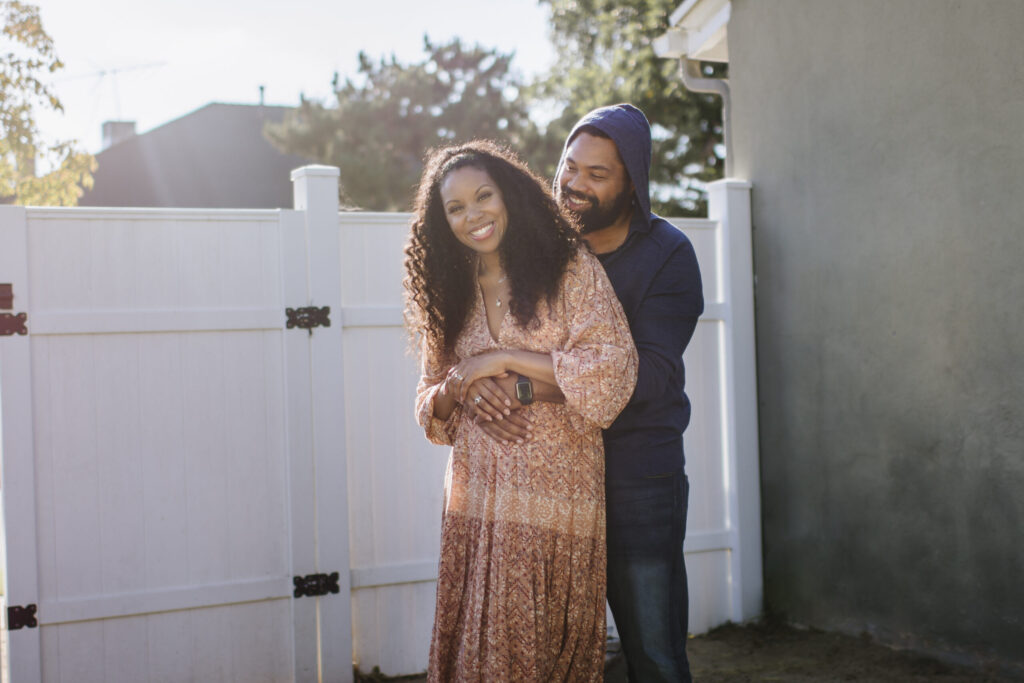
Struggling with being open about her marriage herself, Codie found that in the first year of launching Black Love, she was worried it would be difficult to debunk the old wives’ tale that you should keep issues only between you and your partner.
Proving herself wrong, Black Love ran for six seasons, was a five-time NAACP Image Award nominee and included interviews with more than 250 couples—including Tommy and Codie themselves. It drew in 1.2 million total viewers during its premiere episode in August 2017, making it OWN’s most-watched unscripted series debut in network history and its highest-rated unscripted series debut in more than four years. Concluding its final season on July 23, 2022, the show garnered a response that proves people are hungry for these candid conversations.
I have to admit, it’s been hard telling others the story about that September night. I kept those cards close to my chest for months, fearful that people would judge me or question whether my marriage was healthy. But with each person I told, the more healing I received as wives nodded their heads and affirmed me with a “Girl, me too.”
Contrary to the fairy tales depicted onscreen by our favorite Netflix shows, Hollywood movies, and social media apps, marriage is not a walk in the park. Nor is it for the faint of heart. Successful marriages are for those who are willing to put in the work, which often requires deep reflection, tough conversations and a willingness to change. But despite how hard it can be, the fight for real, healthy and safe Black love is always worth it.



